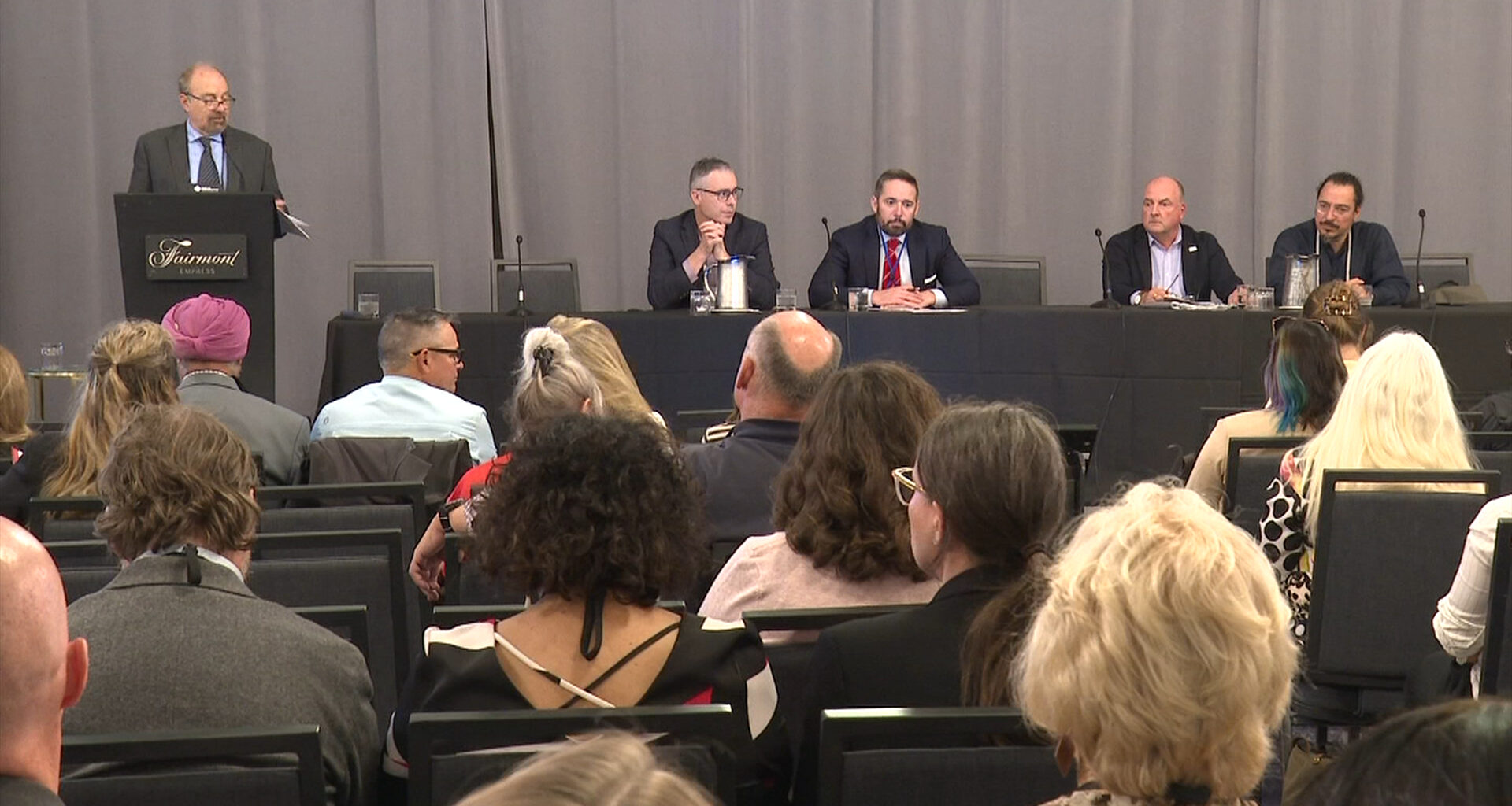Municipal politicians used the first day of the Union of BC Municipalities convention in Victoria to push the B.C. government to do more to curb ongoing street disorder in their downtown cores, saying the addictions, crime and mental health issues have grown far beyond their ability to control.
A collection of urban mayors representing cities with 60 per cent of the province’s population said the government has left thousands of housing units that could address homelessness unfunded.
Victoria mayor Marianne Alto said cities are overwhelmed trying to handle the social services, shelters, housing services, transportation and other upstream costs needed to slow the demand on policing and public works budgets that respond to the disorder.
Watch below:
“The gaps in providing social services, health services and housing are driving local governments into the necessity of filling the gaps any way they can,” said Alto.
“We have only the one taxpayer, and our taxpayers are not expecting to spend that kind of money on issues which are clearly within the provincial realm.”
Alto, who spoke on behalf of the Urban Mayors Caucus, said it’s unacceptable for local governments to hold the majority of responsibility responding to vandalism, homelessness, addictions and mental health, and that is not a tenable situation.
Municipal leaders in Nanaimo, Vancouver, Nelson and Dawson Creek added to that later Monday at a UBCM event titled ‘Disordered Downtowns.’
The BC Chamber of Commerce cited business closures caused by unrelenting thefts and vandalism. The association representing B.C. Crown prosecutors said it is suffering a shortage of prosecutors to handle a rise in crime, especially in communities like Nanaimo and Langford.
The CEO of the Our Place Society in Victoria, Julian Daly, said what’s occurring daily on the street is a healthcare crisis that in some cases requires involuntary detention of people who can’t care for themselves.
Premier David Eby’s point person on involuntary care, Dr. Daniel Vigo, attempted to argue that he is making progress on that issue under the existing Mental Health Act, even if mayors said they do not see such progress in their communities.
Health Minister Josie Osborne said government continues to try to address what is a complicated issue.
“There is a small proportion of people out there who simply are not in a position to make the best decisions for themselves, and represent a growing issue for people who want to do the right thing with respect to caring compassionately,” said Osborne.
UBCM continues until Friday.
